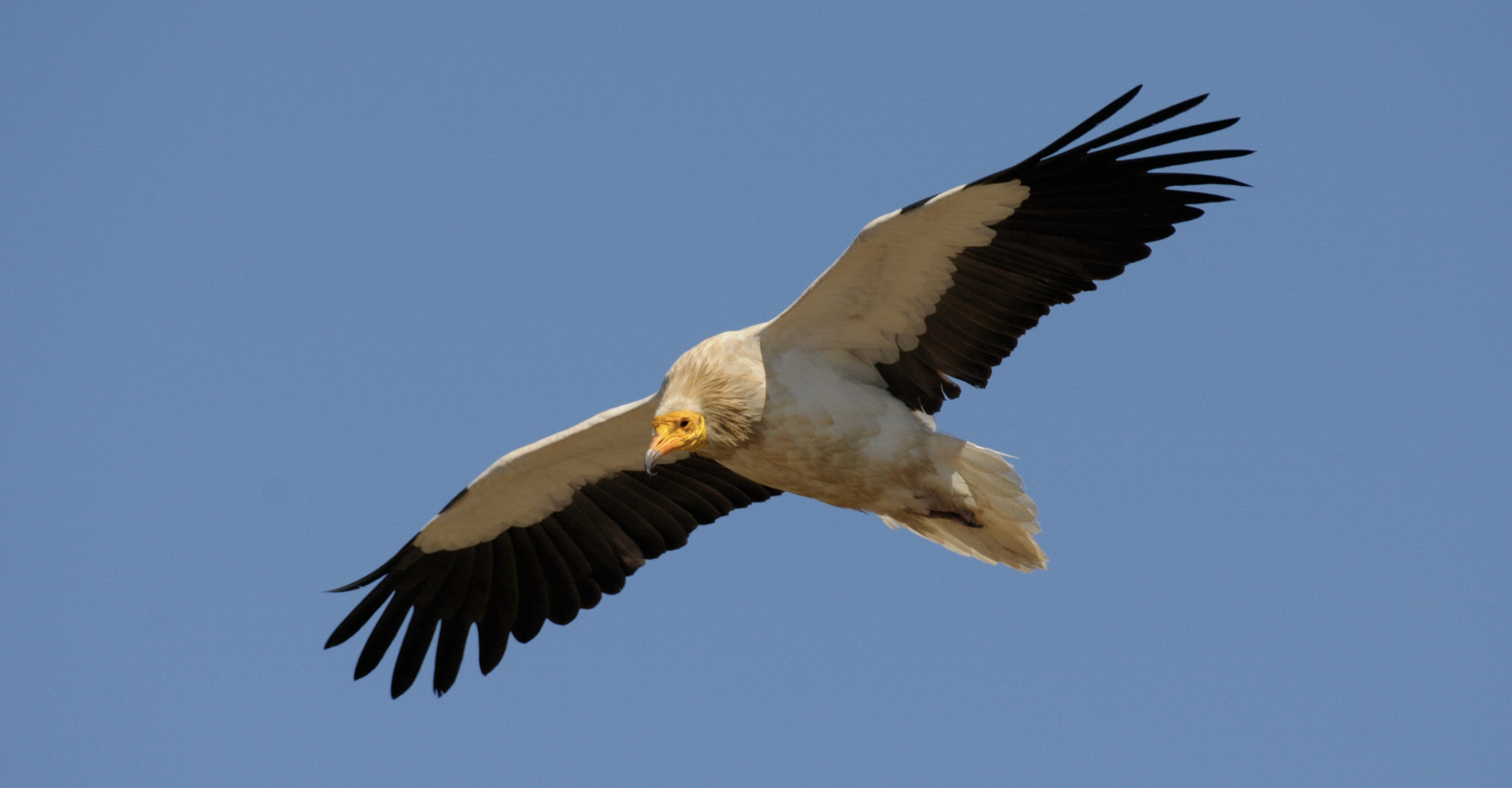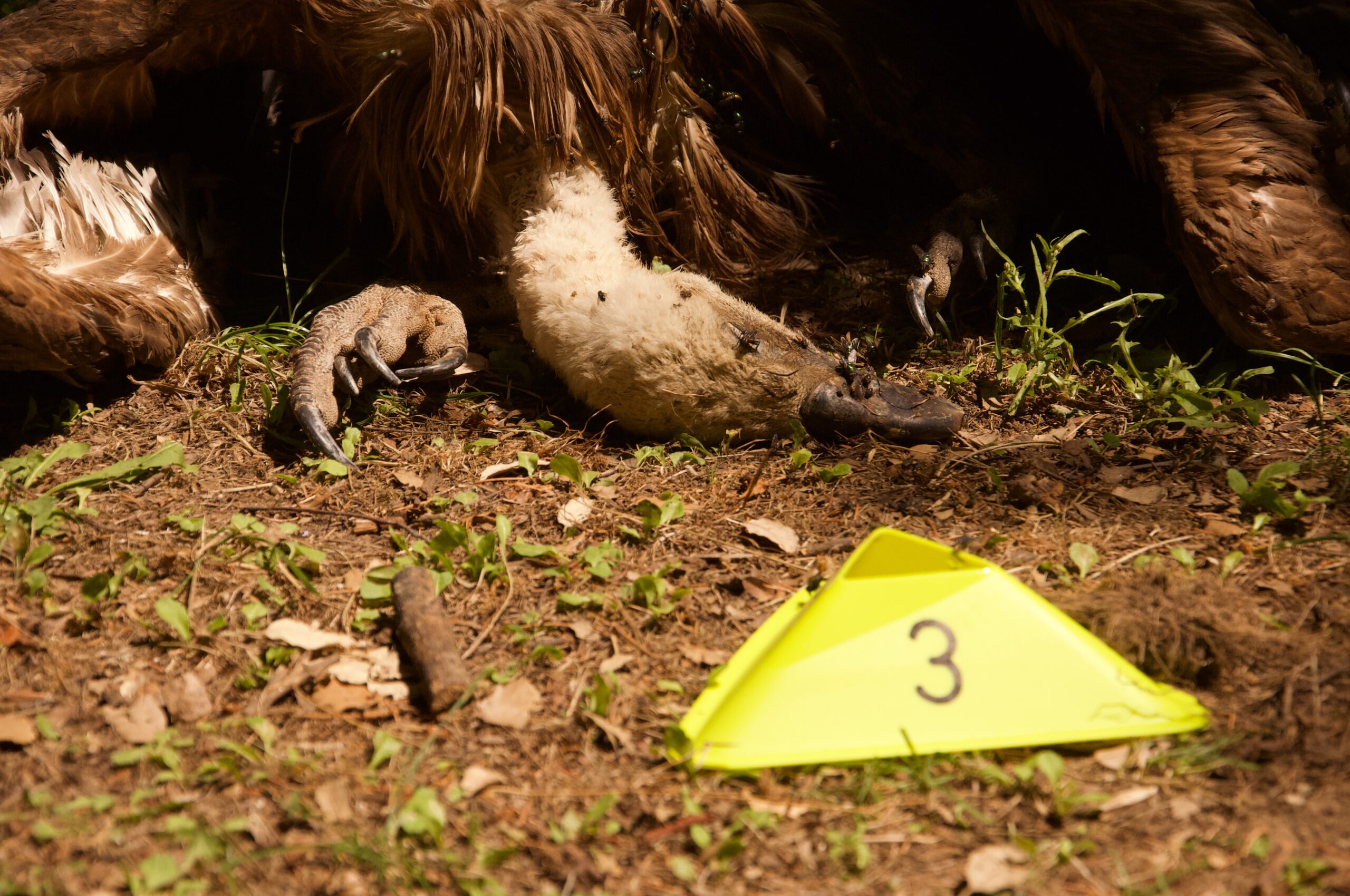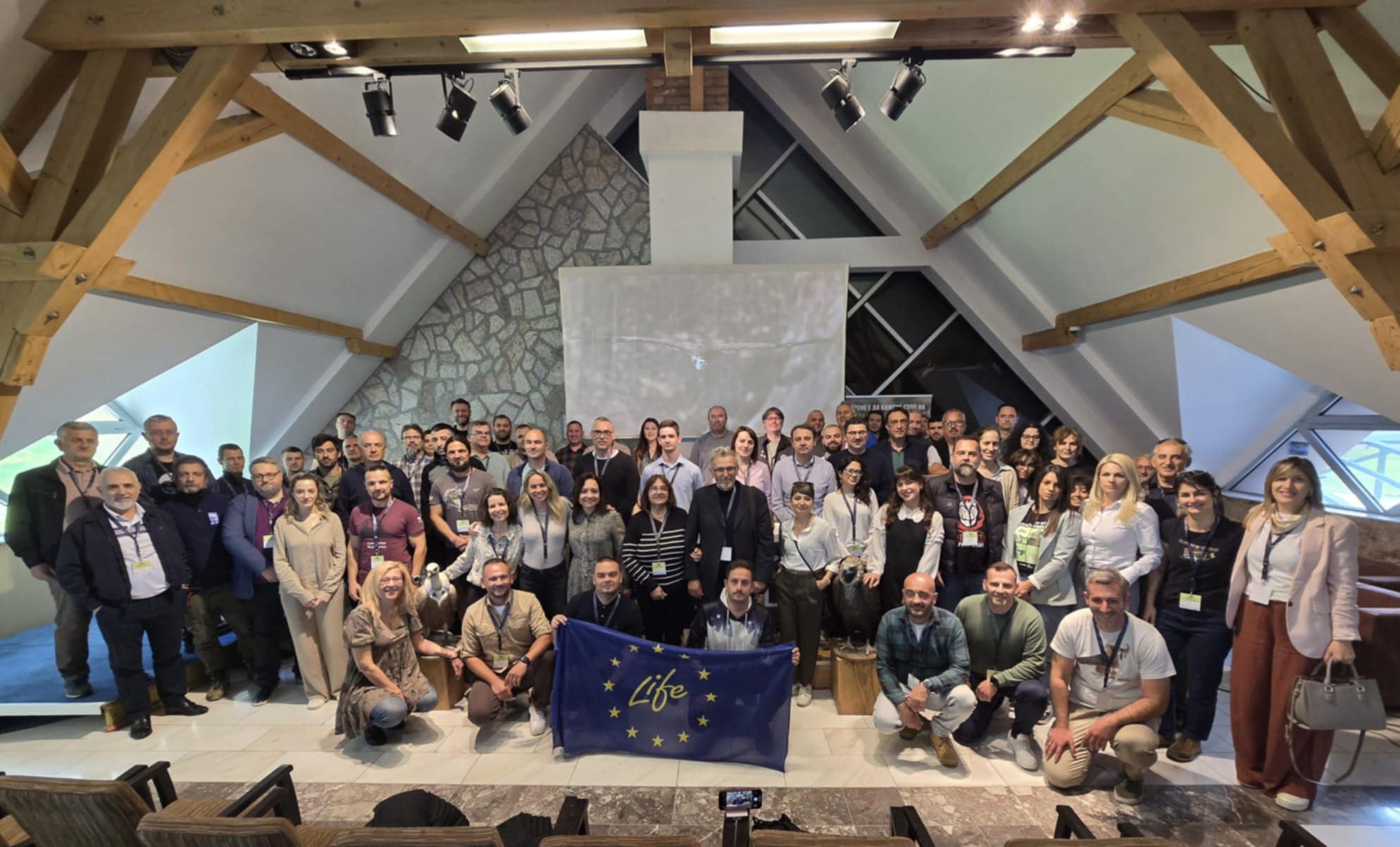
Two young Egyptian vultures released in southern Italy as part of the LIFE project Progetto Capovaccaio have died during their migration to sub-Saharan Africa. One bird was shot by a hunter in western Sicily, while the other died two days after it arrived to Tunisia, probably the result of poison.
Clara and Bianca

Born at the Endangered Raptors Centre, Centro Rapaci Minacciati in southern Tuscany, Clara and Bianca were from the same brood and two of eight chicks born at the Egyptian vulture captive breeding centre this year.
In August Clara and Bianca were fitted with GPS transmitters and released at the Parco Naturale della Murgia Materana in southern Italy, as part of the LIFE project on the conservation of the species in Italy.
Clara being fitted with a GPS transmitter before her release in August
Filmed at a supplementary feeding station this is Clara and Bianca after their release into the wild:
On 3 September the two birds left the release area to begin their epic journey south to their wintering grounds. Both birds traveled together and made it as far south at Sicily together. However, neither birds were to make it to their final destination.

Clara shot by a hunter in Sicily
Clara was shot dead by a hunter in western Sicily on 9 September and was x-rays found she had multiple lead bullets in her body. “This region is known as a sort of a gigantic “black hole” for migratory raptors, and birds in general, due to widespread illegal hunting”, wrote Guido Ceccolini, the president of the Centro Rapaci Minacciati.
As a result of the tragic death of Clara Guido Ceccolini, the president of the Centro Rapaci Minacciati is calling on the Italian government to change the legislation to prohibit the pre-opening of the hunting season in September, the most crucial time for migratory species like the Egyptian vulture. You can join Guido in his call by signing his petition directed at the Italian Minister for the Environment.
Bianca died in Tunisia, probably due to secondary poisoning
Despite the death of Clara continued her travels through Sicily and then made a short visit to Pantelleria Island. From there, she flew 338 km in one flight (148 km over sea and 190 km over land) and arrived to Tunisia on 12 September.

The next day, the satellite data showed some anomalies which indicated that the bird maybe in trouble. To find out what happened and try to save her if still alive, the Association CERM contacted the Association “Les Amis des Oiseaux” (AAO/BirdLife Tunisia) and asked for help. On 14 September, Hichem Azafzaf (the president of AAO) and Hedi Aissa travelled some 350 Km to the south to search Bianca. Like other similar cases, there was hope that the bird could be injured or weakened and, therefore, could still be saved.
Unfortunately however, when they arrived at the GPS location, they found Bianca already dead. “The beak and mouth were stained with blood” noted the AAO team, who were accompanied by the local representatives of the Tunisian Forestry Administration. This suggests that the cause of death may have been secondary poisoning. AAO/BirdLife Tunisia added: “the autopsy and toxicology tests are underway and should provide information on the exact causes of death”.
Egyptian vultures in Italy

Once found all along Italy’s Tyrrhenian coast from the province of Livorno to Calabria, the Egyptian vulture suffered a 80% decline in its population since the 1970s due to poaching, disturbance of nesting sites, reduction in their food supply and illegal poisoning. With less than 10 breeding pairs in Italy, the Egyptian vulture is considered critically endangered in the county. The population is concentrated mainly in Sicily (5 breeding pairs in 2015) and the south of the Italian peninsula (3 pairs in 2015).
Progetto Capovaccaio (Egyptian Vulture Project)
Run by the CERM (Centro Rapaci Minacciati, Endangered Raptors Centre), the Progetto Capovaccaio began in 1993 and initiated a captive-breeding programme bringing birds from rehabilitation centres in Spain. The first releases began in 2003 and since then 19 captive-bred birds have been released into the wild in an effort to restock the small population. The project also manages a variety of different supplementary feeding stations and with partner organisations monitors the population of Egyptian vultures.
CERM Full Report ![]() Report on the deaths of Egyptian vultures Clara and Bianca Two young E.V. released in Italy 2018 br Adobe Acrobat Document 2.9 MB Download
Report on the deaths of Egyptian vultures Clara and Bianca Two young E.V. released in Italy 2018 br Adobe Acrobat Document 2.9 MB Download






